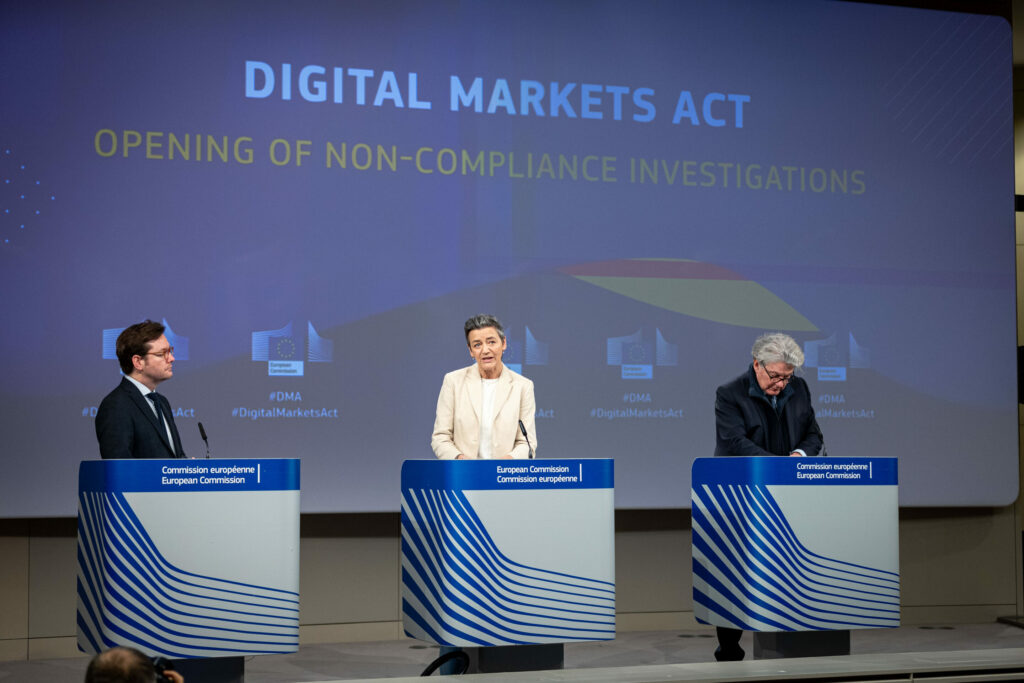The European Union has used new powers under the Digital Markets Act to fine tech giants Apple and Meta, but how does this new rulebook work and what are its objectives?
Yesterday, the European Commission announced that it would fine Apple €500 million and Facebook parent company Meta €200 million, in what is the first time that the DMA has been unleashed against Big Tech.
The Apple fine is linked to breaches of the DMA’s rules about app stores, while the Meta penalty is because of its “pay or consent” advertising model, which requires EU users to pay a fee to access ad-free versions of Facebook and Instagram.
Both decisions come after a year-long investigation into the two companies. The fines are relatively small compared to the billions that both firms have faced due to antitrust breaches, but that is because the DMA is being used for the first time.
The rules became applicable in 2023, after three years of negotiations between the Commission, Council and Parliament and cover so-called gatekeepers, large online platforms that provide core services like search engine functions and messenger services.
Gatekeepers have to adhere to a number of “do’s” and “don’ts”. These include allowing third parties to inter-operate with their platforms in certain areas, allowing businesses to conclude contracts with clients outside of the platform and allowing users to uninstall software.
Ultimately, the DMA is designed to allow users in the EU more flexibility to use online platforms and to shift the balance of power away from the tech companies themselves.
The legislation is not just about issuing fines either. Already, the DMA has convinced companies like Apple to make changes to their policies.
In addition to the fines yesterday, the Commission announced that a separate inquiry into the iPhone-maker has wrapped up after Apple agreed to make changes to its default browser policy, allowing other providers to compete on an equal footing.
DMA enforcement is meant to work alongside antitrust inquiries and privacy rules like GDPR, not replace them. So just because one company gets a fine under one set of rules does not mean they can forget about sticking to the rest.
Complying with the DMA is not a one-an-done affair either. Annual audits, carried out by independent watchdogs approved by the Commission, are also part and parcel of the new rulebook.
This is just a first taste of how the EU will use its new tech-basher to bring multinational conglomerates to heel. The DMA’s provisions allow for fines to reach 10% of a company’s global turnover. Repeated offenders can be hit with 20%.
For megacorporations like Apple, Google and Meta, that means billions of dollars. This week is proof that the EU is not messing around, so Big Tech needs to start playing by the book.

